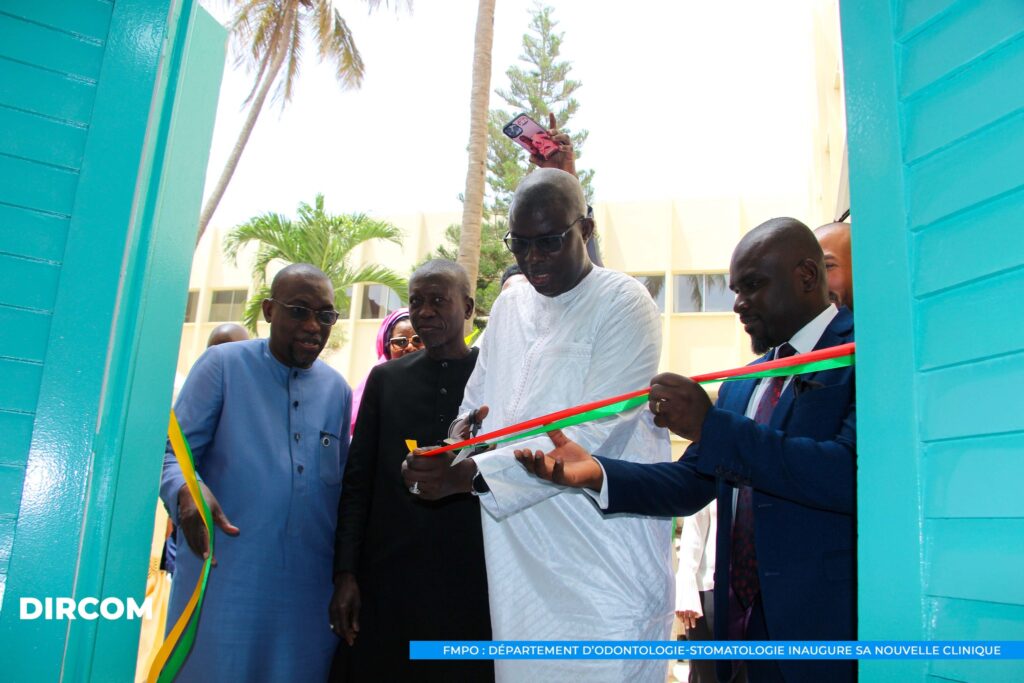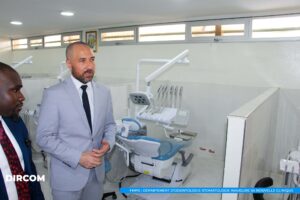A Milestone in Senegal’s Oral Healthcare
A landmark moment for dental education and access to oral healthcare in Senegal was celebrated this weekend at the Department of Dentistry of Cheikh Anta Diop University (UCAD) in Dakar. Mercy Ships (www.Mercyships.org), in partnership with the Institute of Odontology and Stomatology (IOS), the Ministry of Health and Social Action, and other key stakeholders, inaugurated a brand-new dental clinic and officially laid the foundation stone for a new dental training center, two major projects aimed at transforming dental training and care in Senegal.
The ceremony brought together senior representatives from government, academia, the healthcare sector, and Mercy Ships. The event marked both a celebration and a shared commitment to improving oral health services in the country.
“These two infrastructures meet multiple objectives: strengthening national capacities, improving access to quality oral care, by fully integrating initial training into supervised clinical practice,” said Serigne Mbaye, Secretary General of the Ministry of Health and Social Action.
” Today marks the tangible launch of an ambitious public health initiative, founded on the core values of dignity, solidarity, and equitable access to healthcare “
The newly renovated prosthodontics clinic, now fully operational, is equiped with 10 dental chairs and a dedicated radiology room.
“Today marks the tangible launch of an ambitious public health initiative, founded on the core values of dignity, solidarity, and equitable access to healthcare,” stated Professor Bara Ndiaye, Dean of the Faculty of Medicine, Pharmacy, and Dentistry.
The second major development is the upcoming dental training center, designed to further strengthen training infrastructure. Once completed within the next two years, the center will offer 30 dental chairs for increasing specialization for the sub-region, creating a significant boost in both educational and clinical services.
“This collaboration reflects Mercy Ships’ long-term commitment to sustainable healthcare capacity building in Senegal and across West Africa,” said David Ugai, Country Director for Guinea at Mercy Ships.
This milestone is a direct result of a strong partnership between Mercy Ships, UCAD, and national health and education institutions, working together toward the shared goal of empowering a new generation of dental professionals and expanding access to quality oral healthcare for all.








OTHER ARTICLES
Editorial — Prevent, inform, and act for women’s health in Africa
Kenya : Government Prioritises Maternal Health and Strengthens Support for Community Health Promoters
Strengthening pandemic prevention, preparedness, and response capacities in Senegal using the “One Health” approach